Code of Conduct for Staff Ethics and Professional Conduct
Guiding Principles
The purpose of this Code is to promote voluntary standards of professional behaviour within the organisation. Our Code requires our staff to discharge responsibilities in a manner which compromises neither the company Itself, nor the users of Polaris Outdoor products and services by our staff. A
fundamental principle of employment is an acceptance of the clear expectation that the conduct of our staff can be justified professionally, ethically and morally.
Section 1: Scope
1.1 Definitions:-
Staff: Staff can mean, full time employees of the company, directors/executives, contracted persons or subcontracted companies, 3rd party providers and persons associated with leading teams, activities or administrational roles for or on behalf of the organisation.
Customer/user/client: anyone who is engaged with the organisation, its product services and staff.
1.2 The compilation, revision, updating and policing of the Code shall be the responsibility of the director and shall be reviewed at each AGM.
1.3 The Code is set out as principles under the following sections:
2) Professional Integrity
3) Professional Relationships and Responsibilities
4) Professional Standards
5) Relationship with the Customer
6) Commitment to Positive Values in Environmental Issues
7) Interpretation and Enforcement
Section 2: Professional Integrity
2.1 Personal Integrity
The organisation expects the highest standards of personal integrity from its staff. Whilst this will require personal acceptance of high professional standards, it will also be dependent upon the trust created between staff and leadership. The qualities of fairness, honesty, consistency, truthfulness and discretion must be acknowledged as the basis upon which such trust can be built.
2.2 Personal Gain
Staff should not accept favours, gifts or hospitality in situations which could bring the organisation into disrepute.
2.3 Advertising
The organisation logo should only be used for advertising purposes with the express permission of the director. However, where staff are quoted to clients or potential clients, then such mention should be clear, honest and contain no falsehoods or misrepresentations which might bring the company into disrepute.
2.4 Social media and internet presence
Staff may be provided with an email support system for their work-related communications. Its use is therefore limited to tasks directly related to each employee’s function. Limited use of the email system for personal communications is permitted provided this does not disrupt daily proceedings. The organisation recognises that its employees may choose to use their private email addresses for sending or receiving documents when experiencing service disruptions or while abroad on expeditions. The organisation expects its staff to keep this practice to a minimum and to use only strictly secured and known email addresses for such exceptional circumstances if given company accounts. Staff are not permitted to use the email system
to send or receive messages with pornographic, racist, discriminatory, offensive or inflammatory content, with intimidating (sexual) content or which (could) encourage hate and/or violence, has a threatening content or concerns. Staff are not permitted to use the internet system to send or receive chain mail. Staff are advised to use only the email programme made available by the organisation. Staff are also advised to control the integrity of data-ports (USB sticks etc.) before opening them. Distribution of messages and/or confidential information, regardless of the manner and medium (Facebook, LinkedIn or Twitter, etc.), that could damage the interests of the organisation or its staff is prohibited. The latter includes any public activity by an employee or member of staff that could negatively impact on the image of the organisation. Making public any images, films or other types of information regarding the organisation, those involved with the organisation (e.g. partners or clients), staff etc. without prior permission is not permitted. The above does not mean that the organisation will not make use of social media as an organisation or through its employees. This is allowed in line with corporate policies and good practice, and is susceptible to the judgement of the management team. Use of social media for personal reasons during working hours is not encouraged and is not allowed where it negatively impacts on the duties of the staff member. Staff are to use discretion when getting involved in chat rooms and topics on the internet that may cause distress or offense to others and are not permitted to discuss topics or use negative language that may bring the company into disrepute.
Staff are not permitted to visit internet sites with pornographic, racist, discriminatory, offensive or inflammatory content. Neither is it permitted to download, reproduce or disseminate such materials. Staff are not permitted to download and install illegal software (shareware) from the internet.
Section 3: Professional Relationships and Responsibilities
3.1 Professional Demeanour
The organisation is judged by the conduct and presentation of its members as they carry out their duties.
Consequently, there is a clear expectation that staff should conduct themselves in a manner befitting professionals. When dealing with other staff, agencies, company users or general public, staff should present themselves as responsible persons and in a manner which inspires confidence and trust.
3.2 Loyalty
Staff should be loyal to fellow members and should respect and uphold their dignity. There is a clear expectation that any public reference to the conduct, integrity or quality of service of another member of staff should be expressed with due care and respect for that person. However, this requirement cannot override the responsibility of a member of the company to uphold the organisation’s moral and legal obligations.
3.3 Whistleblowing
Whistleblowing is the reporting of suspected wrongdoing at work by an employee, the Company or a supplier or business partner. Please speak up in situations where you suspect dangerous, illegal, harmful or fraudulent activity is taking place, or when you or your colleagues are being treated unfairly.
The organisation conducts its business to the highest standards of integrity and honesty, and staff are expected to maintain the same standards in every aspect of work with the company.
To work out the right thing to do in any situation, ask yourself:
• Is it legal?
• Is it ethical?
• Does it comply with the organisation’s policies and procedures?
• Would I be happy telling my family or close friend about it?
If the answer to any of these is ‘no’ then the organisation would expect you to speak up. If you have an issue with a colleague or business partner, you should initially discuss the matter with them. If this is not possible, you should speak to your line manager. If it is not possible to talk to any of the above, seek professional advice.
If you suspect wrongdoing you should always report it. If you experience any retaliation or harassment as a result of your action, the organisation will investigate and take appropriate action against the harasser, in accordance with our policies and procedures.
3.3 Working Relationships
1. Members of staff should respect the needs, traditions, practices, special competencies and responsibilities of other institutions, associations, professions and agencies that share a common working environment.
2. Members of staff must manage the operations for which they are responsible with due regard to all staff and client welfare, complying with all legal requirements, Health and Safety requirements, safeguards for Child Protection and with due regard for Equal Opportunity and Ethnic Minority issues.
Section 4: Professional Standards
4.1 Working Competence
1. Members of staff must work within the limits of their competence, taking all reasonable steps to ensure that the services they provide or manage are based on justifiable working practices that place proper emphasis on training, qualifications and experience.
2. Where a member of staff delegates responsibilities, then such staff must be satisfied that the person to whom these are delegated is competent to carry them out, and in the knowledge that the ultimate responsibility for the delegate’s decisions remain with the staff member as if those decisions were
their own.
4.2 Professional Development
1. Members of staff should acknowledge their responsibility to remain active in maintaining and developing their personal professional competence, and actively promote an understanding of Outdoor Education within their working environment and with the public at large.
2. There is a clear expectation that members of staff will strive to improve and update their own knowledge and skills. Staff should also endeavour to share their professional expertise within the company.
3. A record of training and development will be kept by the organisation, it is the responsibility of the staff to ensure that updates are supplied to the organisation should changes arise.
Section 5: Relationships with the Customer
5.1 Respecting the Rights and Needs of the Customer
1. Members of staff must accept their responsibility to promote and protect the dignity, privacy and safety of all those using the organisation’s products and services.
2. Members of staff must manage the operations for which they are responsible with due regard for customer care, Health & Safety issues, Child Protection requirements, Equal Opportunities issues and participants’ welfare.
3. Members of staff must manage their operations in compliance with all legal requirements.
4. Where managing courses on behalf of (or as agents of) the organisation, other organisations or partner companies, members of staff must run such operations in accordance the requirements of the Governing Bodies or organisations.
5.2 Maintenance of Service to the Public
Members of staff have a duty of care to the organisation’s users whom they accept on and are engaged in courses and/or expeditions. Where staff shortages, financial restriction or industrial action might inhibit the delivery of the course in keeping with its stated aims and the expectations of users, then staff must take all reasonable steps to establish priorities and balance the needs of the customer with the competence, knowledge, training and experience of the staff available. On no account must the safety of customer be compromised.
5.3 Personal Relationships
Members of staff should both define and respect the boundaries between personal and working environments.
5.4 Physical and Mental Well-being
Members of staff should exercise a duty of care which safeguards both the physical and mental well-being of all the organisation’s clients.
5.5 Confidentiality
Members of staff are under a duty to safeguard confidential information relating to all users. This requirement is without prejudice to the need to share essential information with professional colleagues.
Section 6: Commitment to Positive Values in Environmental Issues
6.1 Minimum Impact/Sustainable Use
Members of staff should actively promote positive values concerning conservation and enhancement of the countryside, endorsing the principle of “sustainable use” and “minimum impact”.
6.2 Community Sensitivity
Members of staff should be sensitive to the impact of their operation on the local community in which they work; taking all reasonable steps to minimise any adverse impact.
6.3 Shared Use Sensitivity
Members of staff should ensure that the operations for which they are responsible give reasonable consideration to the needs of other operational users who may wish to share the same working venues.
Section 7: Interpretation and Enforcement
Where there is uncertainty or dispute as to the interpretation or application of the Code, such matters shall be referred to the company director. The company director is empowered to convene a special meeting to investigate the issue. Where appropriate, a further disciplinary meeting may be convened. Both such meetings should comprise at least the director of the company.
The outcomes of the above meetings may include:
• No action required
• Written guidance or advice
• Written warning
• Temporary suspension of contract/employment
• Withdrawal of contract/employment
• There is a right of appeal to the next meeting of the director whose decision will be final.

